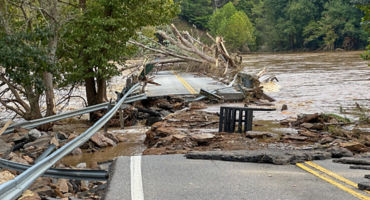Skip to main content
- Funds
- Insights
- Capabilities
- About Us
- My Account
United States, Institutional
Changechevron_rightThank you for your registration
You will shortly receive an email with your unique link to our preference center.
Our approach to biodiversity
Learn more about our approach to assessing financial materiality of biodiversity risks to industries and business models, and how we are deepening our research on biodiversity through our scientific research partnerships, sector-level heat mapping analysis, and engagement with issuers.
EXPLORE CLIMATE RESEARCH

Sustainable commodities: Rethinking investment strategies for a changing climate
As climate change and the energy transition reshape global markets, commodities are gaining renewed attention as inflation hedges and portfolio diversifiers. This article introduces a climate integration framework for evaluating commodity investments through both sustainability and financial lenses.
Multiple authors

Investing in climate solutions across public and private markets
Collaboration between public and private market investors can be powerful. Opportunities where expertise and resources can be shared to accelerate innovation and deployment are optimal. Our experts explore how AI, geopolitics, and global policy are reshaping climate solutions across sectors.

Transition at risk: Checking in on corporate decarbonization progress
Corporate climate transitions face ambition-execution gaps. Success requires integrating decarbonization into business strategy, focusing on emissions, pragmatic Scope 3 approaches, transparency, and credible plans. See how our experts are thinking about this.

2024 Climate Report
Aligned with TCFD recommendations, this report describes how we manage climate-related risks and opportunities, engage with companies on climate change, and reduce our own carbon footprint.
Multiple authors

Finding climate investment opportunities amid shifting US policy
We delve into the evolving landscape for climate investments in the US and explain areas of overlap between government policy, corporate commercial interests, and climate focus.

Collaboration in practice: Climate venture capital
Greg Wasserman, Head of Private Climate Investing, highlights the importance of collaborating with Wellington’s later-stage private market investors and public market experts to better understand best practices, valuation, exit opportunities, and more.

Climate venture capital: Innovation versus hype
Greg Wasserman, Head of Private Climate Investing, discusses the balance between innovation and hype in climate venture capital. He explores automation in agriculture and manufacturing as well as the emerging commercial applications of generative AI.

2024 Sustainability Report
We appreciate the opportunity to share our approach to advancing sustainable practices across our investment, client, and infrastructure platforms.

Climate venture capital: Deployment, valuations, exits
Greg Wasserman, head of private climate investing, explores today’s normalizing valuations, encouraging IPO and M&A trends, and potentially actionable opportunities in climate venture capital.

Geopolitics in 2025: Risks, opportunities, and deepening uncertainties
Geopolitical Strategist Thomas Mucha outlines his structural, policy, and geopolitical outlook for the year.
By

Climate adaptation may cost trillions. Is your portfolio ready?
With climate adaptation and resilience spending projected to exceed mitigation spending sixfold by 2050, we believe investors should consider allocations to adaptation-aligned opportunities.
Multiple authors
URL References
Related Insights
© Copyright 2025 Wellington Management Company LLP. All rights reserved. WELLINGTON MANAGEMENT ® is a registered service mark of Wellington Group Holdings LLP. For institutional or professional investors only.
Enjoying this content?
Get similar insights delivered straight to your inbox. Simply choose what you’re interested in and we’ll bring you our best research and market perspectives.
Thank you for joining our email preference center.
You’ll soon receive an email with a link to access and update your preferences.
